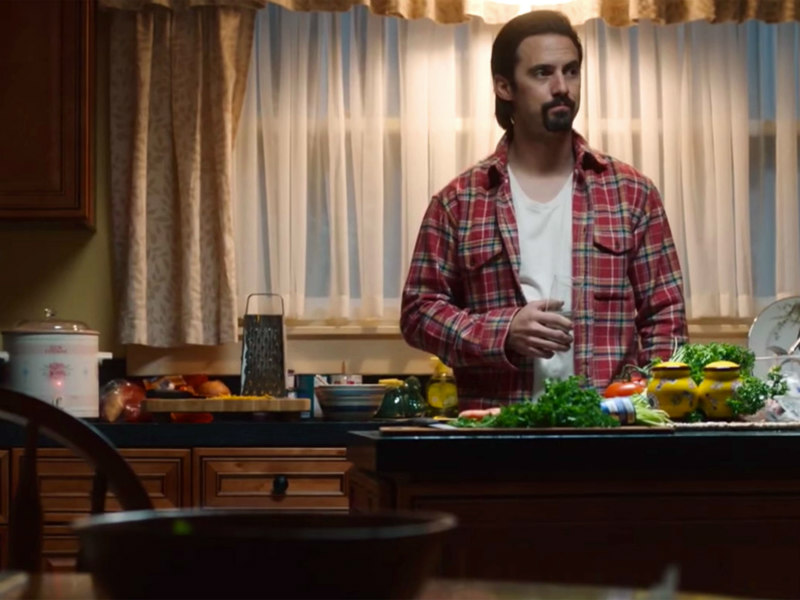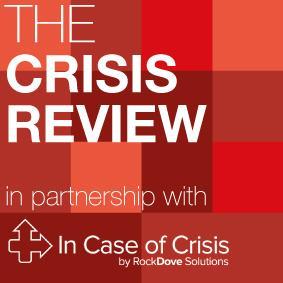Holmes Report 04 Feb 2019 // 3:21AM GMT

View Part One of our 2018 Crisis Review here
View Part Two of our 2018 Crisis Review here
15. Pret a Manger Delays Death Response
Pret A Manger found itself in unfamiliar circumstances last autumn, as the coffee and sandwich chain went from being one of the most loved in the UK to being publicly damned by the coroner overseeing the inquest into the death of Natasha Ednan-Laperouse in 2016.
The 15-year-old had suffered a fatal allergic reaction after eating a baguette bought from Pret that was contaminated with sesame but had no allergen information on the packaging. It took a year for the company’s CEO, Clive Schlee, to write to Natasha’s parents, and it wasn’t until just before the inquest in September, two years after she died, that the company changed its approach to food labelling.
Coroner Dr Sean Cummings described Pret’s response as “inadequate” and said: "I was left with the impression that Pret had not addressed the fact that monitoring food allergy in a business selling more than 200 million items a year was something to be taken very seriously indeed.”
WE Communications UK MD Ruth Allchurch, who previously worked at Diageo, agrees that Pret’s handling of the crisis was “too little, too late.”
Allchurch says that speed is of the essence in any food and drink crisis: “A brand should respond immediately and be across all channels. A statement should go up within the first 10-30 minutes from the CEO and the brand needs to publicly make an immediate apology and change the product labelling information instantly across all branches.” And she points out: “It wasn’t like they hadn’t had the warning signs on this – Pret had six cases in the previous year and still did nothing.”
And she adds that because of the delay in making immediate, positive change, “Pret has now unfortunately found itself being the poster child for all things related to allergy labelling. There is no story written on food allergies and labeling without Pret being cited, which didn’t have to be the case if the company acted sooner.”
As consumer interest in ingredients is growing and more medical conditions are becoming identified – with some allergies appearing to be on the rise – the need for information is increasing. However, this isn’t always matched by knowledge and training in businesses with a large number of (often high-turnover) customer-facing staff.
Rod Clayton, co-head of the global issues group at Weber Shandwick, says the Pret case highlights serious considerations for businesses in the food and drink industries.
“Food producers and restaurants need to work closely with regulators and health professionals to stay on top of the issues and to ensure that the right information is not only accessible but known and understood by staff,” says Clayton. “Of course there are many things that employees cannot and should not address, but they should be knowledgeable about the products being sold. We all should not only feel able to ask questions about what we intend to buy, but also expect to receive a correct and accurate answer.”
And Clayton point outs that, sadly, even the best planning and training cannot obviate all issues. As with all crises, up to and including the most tragic, “the real test of any organisation should be not what happened, but how they dealt with it.” — MPS
16. Lactalis' Contamination Crisis
It was late in 2017 when Lactalis, one of the largest dairy companies in the world, discovered salmonella contamination in one of its factories and French authorities ordered a recall. There was nothing particularly remarkable about that recall—encompassing 12 million units of baby food—at least initially. But in January of 2018, it was discovered that supermarket chains including Carrefour, Leclerc, Auchan, and Systeme U were still selling the recalled food, triggering an ugly food fight between the retailers and the manufacturer, as well as regulators and consumers.
There were accusations that Lactalis—and the “secretive” Besnier family that owned it—had attempted to hide the discovery of salmonella at the factory and bungled its management of the resulting crisis. There was an unseemly back-and-forth between Emmanuel Besnier and the French finance minister, Bruno Le Maire, over whether the recall was suggested by the company or ordered by regulators.
There were also calls for the creation of a “food safety police” in France, and suggestions that fines should be increased on companies that make and sell tainted products. “Those who do not play by the rules must suffer the consequences: criminal and financial sanctions that will be much more important than the current ones,” said Gregory Besson-Moreau, head of the committee formed by the French Assembly to investigate the crisis.
All of that certainly put risk management in the supply chain on the business agenda in France.
Francois Beaume, a board member at AMRAE, the French industry body for risk management, told the magazine Strategic Risk: “The crisis faced by Lactalis is complicated by not being able to quickly prove that the company complied with the correct way of producing its baby milk products, that tanks were correctly maintained and stored, and that everything that should have been done was done.
He added: “A crisis response plan can reduce risk and preserve reputation. Inside the response plan you will have actions that will enable you to mobilise legal, compliance, specific operations personnel, to share information with the public, to manage the noise around the event, and understand the consequences around crisis you need to face.” — PH
17. Goldman Sachs' 1MDB Woes
Malaysia's 1MDB scheme has already turned into one of the biggest financial scandals in history, bringing down Prime Minister Najib Razak's government after it emerged that billions of dollars had been siphoned out of a state investment fund. Goldman Sachs' role in the affair is now under investigation in the US, Singapore and Malaysia, after the iconic investment bank served as underwriter and arranger of three bond sales that raised US$6.5 billion for 1MDB.
Already, US prosecutors have charged two former Goldman bankers for the theft of billions of dollars from 1MDB, with former Goldman partner Tim Leissner pleading guilty to conspiracy to launder money and violate the Foreign Corrupt Practices Act.
All of which suggests that 1MDB may yet have the potential to do what countless other scandals have not — ensnare Goldman Sachs in a crisis from which it cannot easily escape. Shares of the bank have fallen over 25 per cent in the last three months, after headlines about its involvement with the sovereign wealth fund emerged. Meanwhile, the Malaysian government said in December that it was seeking up to US$7.5bn in reparations from Goldman over its dealings with 1MDB.
Significantly, say sources familiar with the situation, the 1MDB scandal is hitting Goldman's bottom line, despite an apology to the Malaysian people from CEO David Solomon.
"They are basically blacklisted in Malaysia and the UAE," says one senior agency source, on condition of anonymity. "A deal of this size had to be endorsed by the senior management. They continue to deny institutional malfeasance, and blame bad actors. They should have cooperated earlier, recognised the failures and worked directly with the impacted governments."
In addition to Malaysia, that includes the UAE, where Abu Dhabi's IPIC co-guaranteed the 1MDB bonds in 2012. Goldman insists that the bank conducted the necessary due diligence before every transaction, but its line of defence has so far proved ineffective.
"Their long held, precious, position of bankers of choice for governments is now at risk," adds the agency source. "Bad behaviour sows distrust. That distrust is now going to hurt their bottom line." — AS
18. H&M Becomes Latest Retailer to Get Race Wrong
H&M had its taste of “internet justice” when New York Times columnist Charles M. Blow tweeted “@hm, have you lost your damn minds?!?!?!” with a screenshot of an ad featuring a black child modelling a sweatshirt reading “coolest monkey in the jungle.” Backlash against the retailer mounted swiftly as celebrities like LeBron James and Diddy joined in calling out H&M on social media. The Weeknd, who had a clothing line with the retailer, even cut ties with H&M over the image.
Within two days, H&M pulled the sweatshirt and ad, issuing an apology hinting that more would be done to prevent future race blunders. “It’s obvious our routines weren’t followed properly. This is without any doubt. We’ll thoroughly investigate why this happened to prevent this type of mistake from happening again.”
Then things took a strange twist when the model’s mother, Terry Mango, also took to social media telling people to “get over it,” adding that the sweatshirt “is one of hundreds of outfits my son has modeled … stop crying Wolf all the time, unnecessary issue.”
Amid all of this, an altered — and more empowering — version of the ad was circulating by the likes of LeBron James that showed a crown over the young boy’s head with the words “king of the world” superimposed.
“The public — kicked off by ‘Black Twitter’ — recreated the H&M image with words of empowerment, shifting brand sentiment on social media,” said Cheryl Overton, president of the Egami Group. “Brand apologies need to be timely and on-point as the public has the means to take control of the narrative.”
That H&M’s ad came just months after Dove’s infamous sweater ad reinforces what diversity advocates have been saying for some time now. “You can spot the work created by teams who haven’t been exposed to the history of racial tensions; at best it’s tone deaf and at worst it offends,” Overton said. “Until the creators — and approvers — of brand campaigns include diverse representation on their core teams, we’ll continue to see work that misses the mark and perhaps does cultural damage.”
Ketchum’s digital SVP Gur Tsbar noted that ultimately “actions speak louder than words. Apologies aren’t enough — they are good first step, but the brand needs to take action.”
In the aftermath, H&M appointed Annie Wu to lead a small global diversity and inclusion team at its Stockholm headquarters. — AaS
19. The Brewdog/Scofflaw Tussle
It’s rare that a press release, that most traditional and innocent of PR tools, is at the heart of a crisis, but this was the case last September when Scottish craft brewery BrewDog ended an event partnership with Atlanta brewer Scofflaw after the latter’s PR agency, Frank, sent out a press release that mentioned that Donald Trump supporters in the UK would get free beer.
The release stated Scofflaw would get British beer drinkers "beered up redneck style completely free of charge but there is a hook, you have to be a Trump supporter.” The brewer later said it was sent without its knowledge.
After a social media backlash, BrewDog also said on Twitter that the release was announced without its knowledge and consent, and that it was not aligned with Scofflaw's position. It cancelled the planned joint event and offered free beer to “anyone who stands for love over hate.”
Frank apologised to Scofflaw and BrewDog, saying: "On 27th Sept, a statement was released to media by an individual employee of Frank without Scofflaw’s approval. The reputation of our client is of utmost importance and we are taking this matter seriously. The employee has been suspended while an investigation takes place.”
It’s hard to pass judgement on who was to blame without being on the inside, and with a number of legal restrictions in place. However, in terms of how the issue played out, Adam Mack, CEO of consumer agency W, says “this crisis is about as perfect an example of the ‘provoke-outrage-apology’ model as you’ll find. No-one could possibly think that channelling Trump to a UK audience is going to lead anywhere other than outrage.”
The interesting thing, says Mack, is how quickly Brewdog turned it round to their advantage, while Scofflaw didn’t: “In cancelling the event and offering free Punk to anyone standing for 'love' over hate, Brewdog came off the better (but for a few brand detractors). In kicking off a round of public reprisals and airing its dirty (agency) laundry, Scofflaw very much didn’t.”
Mack says there are two lessons from the case. “Swift and decisive action and apology in line with your brand values is good. Taking the Jose Mourinho approach and criticising your players in public is not.”
A third view, aired in some quarters at the time, was that all the PR practitioners who were quick to publicly criticise Frank for its actions (both sending the release in the first place, and then suspending the employee in question) should probably do so with caution.
In the fast-moving world of communications, where companies are increasingly expected to make their political stance known, everyone in the industry is potentially vulnerable to misjudging tone, message, and response, and a subsequent backlash. Schadenfreude at other agencies’ mistakes may be irresistible, but it’s not a timeless look. — MPS
20. Crockpot Gets Blamed for a TV death
Talk about being blindsided. There Crock-Pot was, ably slow cooking in kitchens far and wide like it’s done since 1971, when — bam! — NBC in January 2018 aired a “This is Us” episode in which the appliance is incriminated in the death of a beloved character, Jack Pearson.
From there, the story — and the crisis it brought upon the brand — took on a life of its own. Series fans — a particularly passionate lot — lit up the internet, taking out their heartbreak on Crock-Pot with social media posts saying they’d be trashing their slow cookers so they don’t perish in a blaze started by one like dear Jack did. “I’ve been married less than two months and suddenly I feel the need to remove the Crock-Pot from the registry,” read one Twitter post. Facebook got kind of ugly, too, with posts like, “Jack is dead because of a faulty crockpot. Shame on you! I hope his family sues! I’ll definitely be warning my friends and family!”
Hardly the kind of attention brands are looking for when they appear on-air. “Obviously, that was not product placement, and it certainly was not good,” said Kevin Elliott, US director of H+K Strategies risk and crisis communications practice. “Good TV, yes. But not good for Crock-Pot.”
What was “exceptionally good,” though, was the way brand owner Rival stepped in to diffuse the fray, Elliott said. Crock-Pot launched its first-ever Twitter account and used its Facebook page to get in on the conversation, playing it remarkably well with posts such as, “Jack Pearson was our Valentine so we equally understand your pain with his loss. We love him and we love you too. Don’t further add to our heartbreak by no longer using Crock-Pot Slow Cookers, rest assured our products have been generationally tested by your family and friends.”
The brand issued a more technical response, too, attesting to Crock-Pot exceeding industry safety standards, and that the company has never had reports of events like the one that transpired on TV. “In fact, the safety and design of our product renders this type of event nearly impossible,” the brand said.
“They were quick to respond, and their initial statement met the important tests of being empathetic, showcasing the responsible behaviors that are taken to ensure safety and delivering a credible message in an authentic voice. Equally important is what they haven’t done. They haven’t over-reacted. They haven’t blamed anyone. There was no takeover of the brand’s web page. By all accounts, it appears to be business as usual,” he said. In fact, there were even some upsides for Crock-Pot, as it got a hefty dose of unexpected attention. Ellen DeGeneres defended the appliance on air.
The incident, though, should also serve as a cautionary tale for brands, said kglobal senior VP Scott Sobel, who said the Crock-Pot hysteria isn’t that far removed from the infamous Martian invasion scare promoted by Orson Welles’ “War of the Worlds” radio broadcast.
“There will always be a percentage of a mass audience that completely misinterprets the facts or can’t separate fact from fiction,” Sobel said. “We need to identify the worst communications outcome and plan for both the ridiculous and the sublime. Slow-cook that thought when you are writing your next press release or legal safe harbor … ‘When operated properly Crock-Pots will not cause fires and cook TV stars.” — DM
View Part One of our 2018 Crisis Review here
View Part Two of our 2018 Crisis Review here


































.jpg)

































